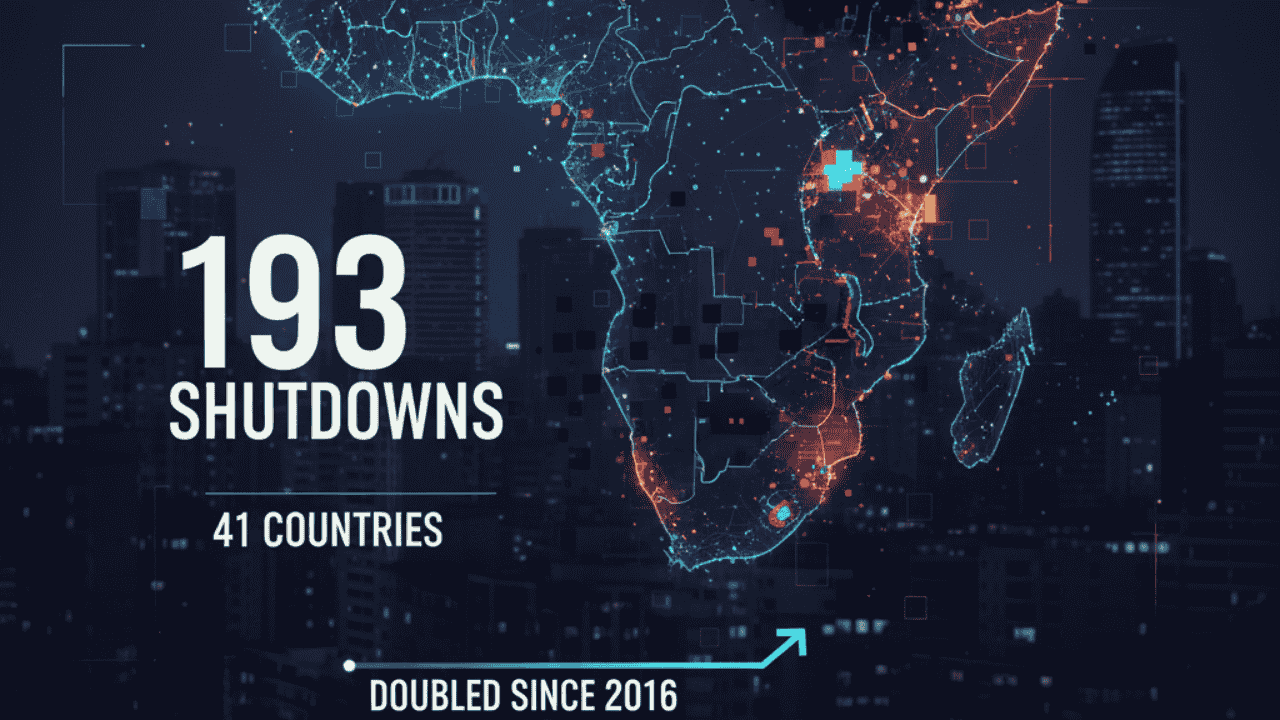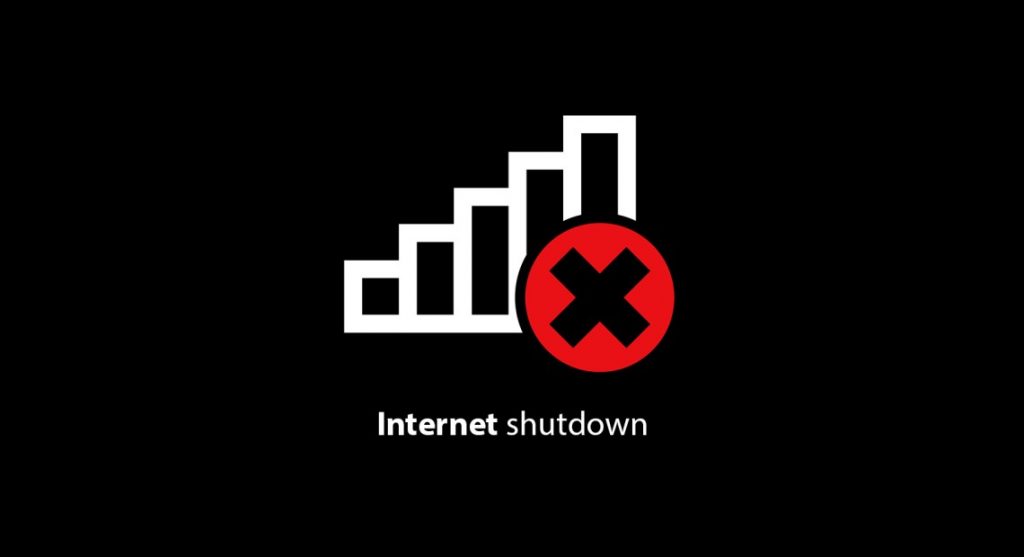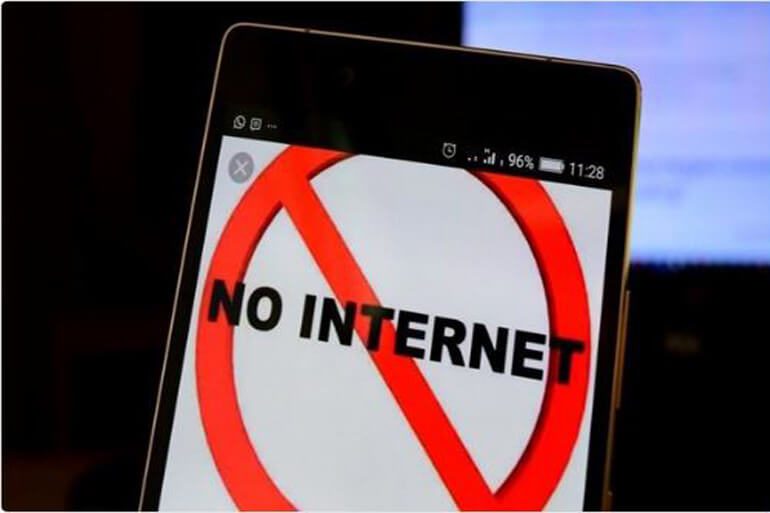







































Internet shutdowns by African governments have doubled since 2016
 28
28
 2024
2024
 2024
2024
 WHEN
WHEN
 ALGERIA
ALGERIA
The number of internet shutdowns across Africa surged to 28 in 2024 compared to 14 in 2016. This is according to a report by researchers from the African Digital Rights Network and supported by the Institute of Development Studies.
According to the team of researchers, which includes Felicia Anthonio and Tony Roberts, governments across the continent are increasingly weaponising internet access to control information, suppress dissent, and, often, conceal human rights violations.
The report shows that between 2016 and 2024, there were 193 recorded blackouts in 41 African countries. Yet, these are not isolated events, but a clear pattern of governments treating digital connectivity as something to be policed, rather than protected.
In Africa, Ethiopia, Sudan, and Algeria are the leading perpetrators.
The triggers for shutdowns are fairly consistent: protests, elections, political instability, conflict, and sometimes broader unrest are among the most common causes.

In 2024, for example, 21 shutdowns impacted 15 countries, the highest in a single year to date. Authorities are increasingly deploying shutdowns precisely at moments when citizens and media need connectivity most: when elections are underway, when protests erupt, or when violent clashes are spreading.
Another striking trend is duration and persistence. Some shutdowns last only hours or a day; others stretch into weeks, months or even years. The people of Tigray and Amhara in Ethiopia, for example, have faced ongoing disruptions that go well beyond temporary suppression.
Real costs of internet shutdowns on Africans
The cost of shutting down the internet is rarely immediately visible. But the report, and corroborating sources, make clear the high stakes. Citizens lose access to healthcare, education, banking, and even emergency services when the internet is cut.
Economies suffer as businesses are unable to transact, supply chains break down, and tourism, trade and media are crippled. Even journalists are stifled; elections become less transparent, and dissenting voices are silenced at critical moments.
Moreover, where shutdowns coincide with conflict or instability, they can conceal abuses. In regions of Ethiopia embroiled in conflict, reduced connectivity allowed for delayed reporting of atrocities. Shutdowns contribute to fear and mistrust, especially when citizens are uncertain about what information they can trust.

Legal oversight is weak. In many countries, the framework for restricting internet access fails to meet international human rights standards.
Restrictions are often not provided for in law or are not transparent; in many cases, they are neither necessary nor proportionate. Civil society groups continue to push for stronger judicial oversight, clearer laws, and accountability for networks and governments that implement shutdowns.
Tony Roberts, Research Fellow, Institute of Development Studies and co-editor of the book, says, “Each internet shutdown violates human rights and damages the economy. It should worry us that regimes are imposing these digital authoritarian practices with increasing frequency and with impunity.”
“It’s important to research further in understanding this evolving landscape of resistance, power imbalances, political motivations, and authoritarian tendencies to guide future action to mitigate the harms of Internet shutdowns and prevent them from recurring,” he added.
Why this matters
When you lose internet access, you lose your voice. In modern societies, especially where much civic life, dissent, and even commerce happen online, the net becomes an essential public good. Choosing to sever it is choosing to silence millions.
The book argues that shutdowns are not simply technical failures or collateral damage. They are deliberate, strategic tools used by those in power.
Felicia Anthonio, a global expert on internet shutdowns and co-editor of the book, explained: “Across Africa, governments are normalising the use of internet shutdowns to suppress dissent, quell protests, and manipulate electoral outcomes. These blackouts are growing in scale and frequency, with devastating consequences for rights and lives in an ever-more digitally connected world.”
“The international community must urgently support civil society efforts against this alarming trend, hold governments accountable, and compel telecom companies to deny unlawful or arbitrary shutdown orders,” she urged.

These blackouts degrade democracy, weaken trust between governments and the governed, and amplify inequalities. Rural communities, marginalised populations, and people without resources to circumvent shutdowns (VPNs, satellite internet) are hit hardest.
It’s important to mention that efforts to resist shutdowns are growing.
Civil society organisations, digital rights networks, journalists, and tech innovators are developing tools to detect blackouts, share information, and restore access where possible. VPNs, offline peer-to-peer tools, encrypted messaging, and pressure campaigns are also gaining widespread acceptance.

International bodies have also begun to respond. Regional courts, such as ECOWAS have ruled against shutdowns. The African Commission on Human and Peoples’ Rights has passed resolutions calling on states “to ensure open and secure internet access before, during and after elections.”
Legal guidance documents have also been published to clarify how shutdowns must be judged under international law: whether they are lawful, proportional, and who is accountable.
But whether resolutions and legal texts will slow or stop the practice remains to be seen.

